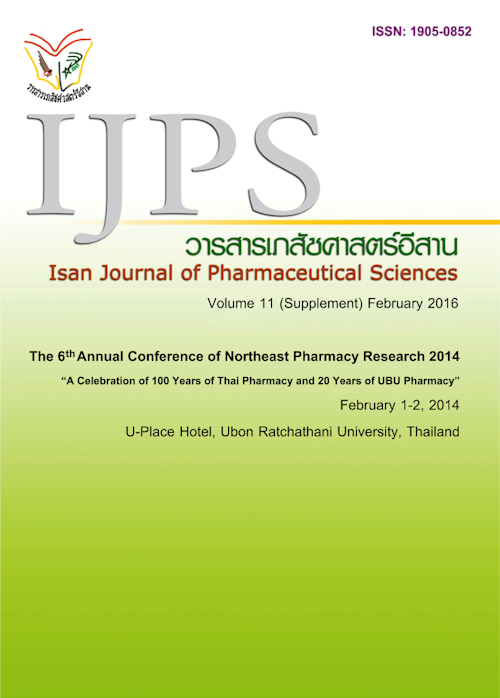Detection of Carbapenemases and Antibiotic Resistant Genes in Carbapenem-resistant Acinetobacter spp. Isolated From Patients at Sunpasitthiprasong Hospital
Main Article Content
Abstract
Introduction: Acinetobacter spp., the gram negative bacterium with high incidence of multi-drug resistance had been mostly found as causative pathogens of nosocomial infection in patients admitted in the intensive care unit. The objectives of this study were to detect the productions of carbapenemases and antibiotic resistant genes of carbapenem-resistant Acinetobacter spp. at Sunpasitthiprasong Hospital. Materials and Methods: One hundred isolates of imipenem-resistant Acinetobacter spp. isolated from patients admitted at Sunpasitthiprasong Hospital were used in this study. Productions of carbapenemases were tested by modified Hodge test and combined disc test. Four antibiotic resistant genes, blaOXA-like, involving in production of Class D carbapenemases were detected by multiplex polymerase chain reaction. Results: Carbapenemases production were found in 35 and 33 isolates by the modified Hodge test and combined disc test, respectively. blaOXA-like genes were detected as blaOXA-51-like, blaOXA-23-like and blaOXA-58-like genes in 92, 92, and 8 isolates, respectively. No detection of blaOXA-24-like gene was observed. None of the candidate genes were simultaneously found among 4 isolates. Conclusion: Carbepenemases productions may be an important mechanism of carbapenem resistance among clinical isolates of Acinetobacter spp. at Sunpasitthiprasong Hospital. The most common types of class D carbapenemases genes contributing to carbapenem resistance in these isolates were blaOXA-51-like and blaOXA-23-like. However, the expression of these resistant genes should be further investigated.
Article Details
In the case that some parts are used by others The author must Confirm that obtaining permission to use some of the original authors. And must attach evidence That the permission has been included


